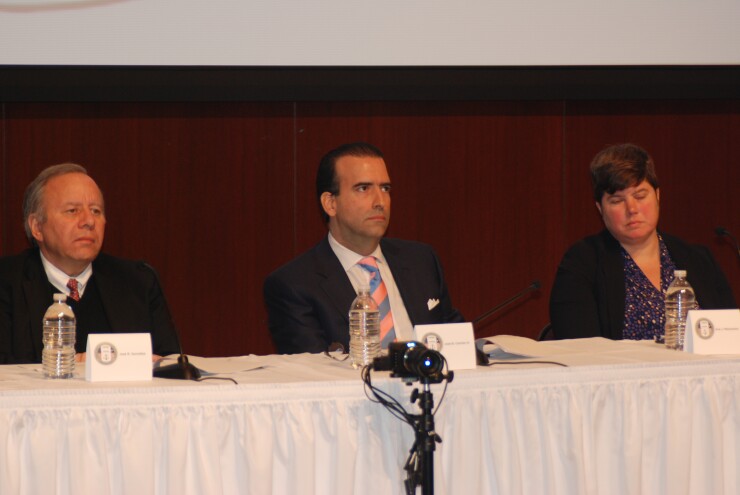Puerto Rico Oversight Board costs exceed projections by four times
3 min read

The Puerto Rico Oversight Board costs have been more than four times what the board and the Congressional Budget Office projected near its founding in 2016.
In a report released Tuesday, Puerto Rico nonprofit Espacios Abiertos found the board has paid $1.5 billion to outside advisors through late June of this year. In summer 2016 the U.S. Congressional Budget Office estimated that all the board’s expenses from 2017 to 2026 would be $370 million. In spring 2017, the board, in its certified fiscal plan, repeated the projection that $370 million would be spent through 2026 as a restructuring cost.
The CBO came to this estimate by looking at the administrative expenses in past U.S. municipal financial crises. At that time, it noted that Detroit spent $170 million on its passage through bankruptcy adjusting $18 billion of debt.
Robert Slavin
The $1.5 billion figure understates the board’s true expense as it includes neither the salaries of the board’s professionals nor the rent of the board’s office space since 2016. And the board will have to continue to pay for both internal expenses and outside advisors through 2026 and quite possibly beyond.
The board’s money comes from Puerto Rico General Fund revenues.
Puerto Rico’s bankruptcy “is the largest public sector debt restructuring in the history of the United States and extraordinarily complex,” the board said in a email.
The expenses incurred in the bankruptcy process, “including those resulting from litigation brought by the government, are substantial but a fraction of the savings already achieved,” the board said. “The completed debt restructurings alone will save Puerto Rico more than $70 billion in principal and future interest. The fees have been well within the proportions of other public sector bankruptcies like Detroit.”
Puerto Rico’s more than $130 billion of financial and pension liabilities “were issued by more than a dozen public entities and creditors and other claimants have aggressively asserted rights, liens, and remedies in a profusion of litigation and mediation,” it noted.
In its report, Espacios Abiertos said the board had reduced Puerto Rico’s debt by about $56 billion and that some, on first glance, might say this cut might seem to justify the consultant payments.
“The problem is that this reasoning has great weaknesses due to the blatant absence of a causal relationship between spending on consultants and debt relief,” the report said. “In other words, if the proposed debt cut comes from a lack of resources to be able to pay, it would be very daring to conclude that spending on the consultants and their recommendations is justified. Especially when this relief never corresponded to an arbitrary decision not to pay but to a clear and demonstrated inability to pay.”
“The spending has been extravagant,” Puerto Rico Attorney John Mudd said, “but the board can point out significant savings on bond payments.”
The Espacios Abiertos report found the board has paid $1.193 billion for outside firms in the various bankruptcy processes heard in federal court. It has paid $307 million for outside advisors apart from the court bankruptcy.
According to the report, of the $1.193 billion figure, 73% was used related to the central government’s bankruptcy, 15% was used for the Puerto Rico Electric Power Authority bankruptcy, 5% for the Puerto Rico Sales Tax Financing Corp. (COFINA) bankruptcy, and the remaining was used for three other smaller bankruptcies.
In the bankruptcies, the board has given $277.3 million to consultant McKinsey & Co., $224.5 million to law firm Proskauer Rose, $133 million to consultant and accountant Ernst & Young, and smaller amounts to many other firms.
Puerto Rico Clearinghouse Principal Cate Long said the board’s own fiscal plan projects Puerto Rico economic contraction after 2028. She said the island would likely become an “increasing drag on U.S. taxpayers. The World Bank metrics show the Puerto Rico government effectiveness, regulatory quality, and rule of law has declined substantially since the Oversight Board took over.”
She said while the World Bank showed better control of corruption in the most recent measure in 2021, this was likely due to the FBI’s and U.S. attorney’s work on the island.
“It’s hard to believe [consultant] McKinsey has been paid $277 million and left the island in worse condition than when they started,” Long said. McKinsey did not immediately respond to a request for a comment.
the Puerto Rico Electric Power Authority bankruptcy







